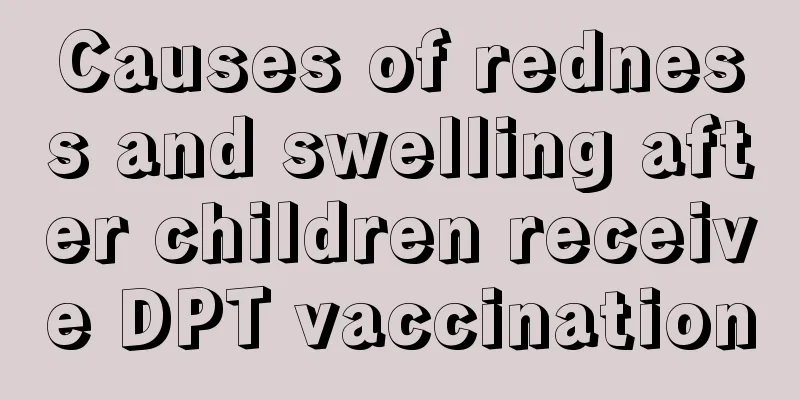What medicine should children take for nausea and vomiting?

|
For children, vomiting is a relatively normal phenomenon. Sometimes the child may vomit because the child is fed too much breast milk. This situation can be eliminated by simply slightly changing the amount of breast milk. However, some parents have found that their children always feel nauseous and vomit when they do not drink milk, and they suspect that it is caused by disease. So, what medicine should children take for nausea and vomiting? Clinical manifestations Vomiting is just a symptom that causes great pain to the child. Before vomiting, the patient is pale, has upper abdominal discomfort (children often complain of abdominal pain), has anorexia, and vomits after eating or drinking. Protrusions sometimes come out of the mouth and nose. When vomiting is severe, the child will show clinical symptoms of dehydration and acidosis, such as thirst, oliguria, listlessness, red lips, and deep breathing. The causes are diverse and are accompanied by symptoms of the primary disease. treat The main purpose is to find out the cause and treat the primary disease. On this basis, symptomatic treatment is adopted. 1. Children who vomit should lie on their side or sit up, and rinse their mouths with warm water after vomiting. Give the child a small amount of fruit juice and light salt water to drink. If the cause is due to improper diet, take a rest and reduce food intake. 2. After vomiting stops or is relieved, give a small amount of lukewarm, easily digestible food or liquid food such as rice soup. 3. Those with dehydration or electrolyte imbalance should be given fluid replacement and electrolyte imbalance should be corrected in a timely manner as needed. 4. Those who vomit frequently should be given antiemetics and sedatives. Such as Lumina, Hibernation Spirit, Metoclopramide suppositories, etc., use Metoclopramide with caution. 5. Antispasmodics, such as belladonna mixture, atropine 654-2, propantheline, and 1% to 2% procaine. prevention 1. Newborns and infants should not be breastfed too quickly. After breastfeeding, hold the baby upright, let him lie on the mother's shoulder, and pat his back gently until he hiccups. 2. Pay attention to eating at regular times and in regular amounts, avoid overeating, and do not overeat fried, greasy foods and cold drinks. 3. Pay attention to food hygiene and do not eat dirty or rotten food. 4. Strengthen physical exercise, enhance body resistance and prevent viral and bacterial infections. |
<<: What to do if your child has a fever
>>: What do junior high school girls' breasts look like
Recommend
Healthy recipes for six-year-olds
The physical growth of preschool children is very...
What should I do if my one month old baby doesn't sleep during the day?
Is it normal for babies not to sleep during the d...
Treatment of newborns getting angry after drinking milk
Many of our newborns will get a sore throat after...
What is the standard height and weight for a five-year-old girl?
Maybe many of our parents and friends are not ver...
Can children become smarter by eating pigeon eggs?
Many parents will prepare a variety of nutritious...
What to do if your baby has a runny nose
There are many common problems for babies. In ord...
Neonatal sputum sound
Some parents will find that their newborn babies ...
The child's thumb cannot be straightened
Parents should pay special attention to observing...
What to do if your eight-month-old baby crosses his eyes
We often see many newborn babies with crossed eye...
What to do if your child doesn't brush his teeth
When babies are young, there are some things they...
What is the cause of the child's sternum protrusion?
It is said that children are the flowers of the m...
Small pimples on the child's wrist
Children's wrists are very likely to be injur...
The difference between ADHD and hyperactive children
Many people suffer from ADHD in life. In fact, AD...
What to do if your one-year-old baby doesn't like to eat
When babies are young, there are many problems th...
What sports are available for children?
We all know that the sports that adults do are de...









